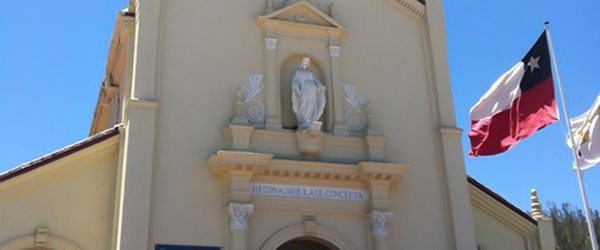How to convey the “good news” with simplicity and dynamism was at the heart of the messages delivered by speakers during the Sept. 29 San Pedro Religious Education Congress held at St. John Bosco High School, Bellflower.The event was attended by school teachers, catechists, youth ministers and individuals, including youth and young adults seeking to learn new ways of teaching the Gospel and increasing their own faith.“I like coming to Congress because we learn about modern ways of receiving and teaching the Word,” said Sofía Valenzuela, a master catechist at St. Gertrude Church, Bell Gardens. Her priority this year was to learn more about integrating technology in her catechism classes.“Children already use technology, so we need to learn how to appropriately handle it in our classes,” said Valenzuela, adding she was motivated by what she had heard at the opening liturgy, presided by Auxiliary Bishop Oscar Solis.Religious Sister of Charity Edith Prendergast, director of the archdiocesan Office of Religious Education, told the packed school gymnasium that the Year of Faith proclaimed by Pope Benedict XVI offers a wonderful opportunity to “deepen our relationship with our God and to tell the story of Jesus all over again.”Bishop Solis urged attendees to follow the example of the angels Michael, Gabriel and Raphael, whose feast was celebrated the day of the event.“In the Scriptures, in the Word of God, angels mean messengers,” said Bishop Solis. “An angel speaks a particular word or carries a particular mission assigned by God, such as Gabriel, who announced the birth of Jesus to the Virgin Mary. We are called, chosen and sent by God for a particular purpose and mission in our church.“Our identity is as messengers, agents of God, agents of conversion, agents of change in the lives and hearts of our people. We are called to be of service by our loving God and to serve in our mission with a special spirit of enthusiasm, commitment and joy.”Participants at the workshop “‘Help! I’m Growing!’ Catechizing is Not Just Teaching” were urged to reflect on evangelization as they watched a video of the torch being passed in the Olympic Games, while Father Ken Deasy, speaker, narrated the story with key words.“Light. Holy Communion. Progression. Participation. Inclusion. Initiation. Preparation. Looking forward. Anticipation. Tying past to present. Rising. Creativity. Ingenuity.“We spend too much time trying to get to heaven, when people in our ministries are just trying to get to Saturday,” he told the assembled catechists.“It’s not good for men and women to be alone,” he said, explaining that evangelization means to be together with others. “We have to learn to sell what we’re teaching, and the best sale is what you already have: your own walk, your own story.”He urged the audience to not be “dormant and passive,” and instead explore the needs of others.“It’s not about a formula, but about relationships,” he said. “It’s not so much about being effective, but being affective; not about getting to heaven, but being in the Kingdom; not about the tomb [of Jesus], but about the freedom of you getting out of the tomb; not so much about God being present, but us presenting God; not so much about serving God, but serving God to others; and not only the Book is good, but my experience is good.”Catechists Aida Salazar and Alice Martinez welcomed the message delivered in a fun way.“I learned that you have to teach kids in their own language,” said Martinez, a children’s catechist, “and not confuse them with our old ways.”“It’s about making everything simple,” added Salazar, “to establish a better communication.”Gloria Torres, presenter of the Spanish workshop addressing “Youth and Their Energy,” provided dynamic ways of interacting with youth and giving direction to their energy through group dynamics to get youth involved with others and reflect about their experiences in life — and how these could help in their own transformation.“Put yourselves at the level of the youth, put yourselves in their own tennis shoes, their Converses,” Torres told participants, after having them exchange shoes with another person and walk together using the new shoe.She stressed the need in parishes of improving teamwork among regional catechists to learn from each other for the benefit of their students.In her workshop, “An Introduction to Special Needs: Major Disabilities Overview,” Giorgia Diomedes exhorted participants — mostly special need teachers, catechists and relatives of children with special needs — to explore the “invisible” in their students.“Every child acts differently, and it’s good to ask yourself what are the invisible emotions that might be going inside this child,” she said, after explaining the symptoms of some common disabilities, including autism, cerebral palsy, and spina bifida.“Behavior is communication,” she said. Those involved in education of children with special needs “are the shapers of the world’s view of disabilities,” she added, and urged her audience to set “spiritual goals” to “let the world know that Jesus also loves them and to get them to be independent.” More than 1,020 participated in the event, including exhibitors and speakers, according to Karina Plascencia, San Pedro Region coordinator for the Office of Religious Education.{gallery width=100 height=100}gallery/2012/1012/spcongress/{/gallery}

